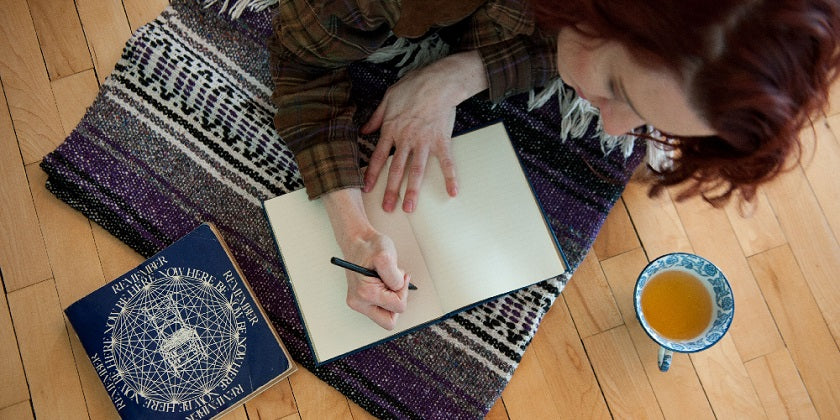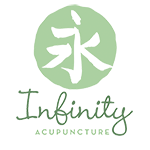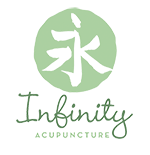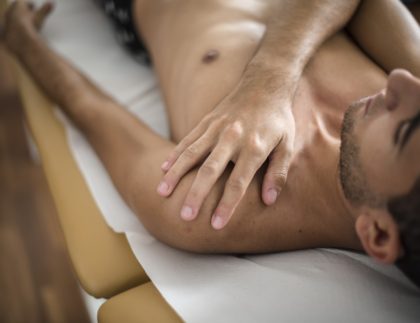As fall arrives and the energetic outward movement of yang summer transforms into the deep inward reflective yin of winter, we too should remember to allow space for the transition inwards. Thoughts become more pensive, we start to crave tea and books over beer and socializing, and there is a need for deep rest after all the goings of summer.
Fall is the time of completion: leaves are turning, salmon are finishing their journey home, and our gardens are harvested and ready for winter. It is a good season for setting intentions about things we may want to let go of. Whether those "things" are material, emotional or habitual, fall is the time to put them to rest.
If you were looking for a reason to do so, it is energetically the best time of the year to quit smoking from a Traditional Chinese Medicine perspective, or at least give your lungs a break through the transition of seasons.
GOING INTO DARKNESS
In Chinese Medicine theory, fall is the season of the Metal element and corresponds to the lungs and large intestine. Metal governs the emotion of grief, controlled by the lungs, and its virtue is acceptance, controlled by the large intestines ability to let go.
As the yin builds and goes inward, we too may find ourselves going into the depths of our closets and revisiting unhealed wounds. Luckily for us, metal is also linked with connection to spirit and completion. Making space for acupuncture treatments, meditation, yoga, nature, or whatever you feel connected spiritually can help soothe the PO (the lung spirit) and vent grief, so it may realize completion.
According to Kaptchuk, "the lungs concern the momentary and ephemeral." Whatever darkness may be coming up for you now, the lungs remind us to breathe through its impermanence.

LUNGS
The lungs are responsible for circulating fluids and Wei Qi, otherwise known as Defensive Qi, which circulates on the bodies’ surface between the skin and muscle, known as the Cou Li. In western terms, this is most closely analogous to the immune system. If the lung’s Qi is constrained with grief, the Defensive Qi will not rise to the skins surface and we may be susceptible to cold and flu.
Another common reason cold and flu season is falling upon us (pun intended) is that the climactic factor of autumn is dryness. The lungs dislike dryness and this again can inhibit the lungs function of circulating fluids and Defensive Qi. With fluids failing to reach the skin's surface, we may see exacerbation of skin conditions such as eczema or psoriasis, or irritations like dry cracked skin and brittle, lackluster hair.
You can combat lung Qi constriction and dryness by putting a few drops of aromatic essential oils, like peppermint or cinnamon, into a hot shower and allowing your lungs to be nourished by the steam. Good quality organic oils like coconut or sesame are wonderful post shower moisturizers to sooth the skin and hair and have been known in Ayurvedic medicine to tonify the nervous system.
LARGE INTESTINE
The large intestine is the official involved in charge of passage and conduction. Much like in a western ideology, the large intestine's function is to transform digested food into stool and reabsorb fluids. Emotionally it is responsible for “letting go” and acknowledgement for the sake of moving on. If the large intestine does not receive Qi from the lung or if it is affected by seasonal dryness, it will not have the proper energy or moisture for defecation, resulting in constipation.
Interestingly, I have noticed a clinical connection in patients with chronic constipation who also have deep grief and difficulty acknowledging past traumas. Glossy foods such as honey, spinach, pine nut, and fig and gentle ways to moisten and lubricate the intestines.
If you are in need of something a little stronger, dandelion tea and magnesium might be good options to help move blockages.
FALL BREEZE WILL BRING THE SNEEZE
Ever heard of your wind gate? It's the space between your shoulders and occipital bone—i.e., the back of your neck. Wind in Traditional Chinese Medicine theory refers to both the climactic factor, as well as what we call pathogen invasion (as in catching a cold).
If the back of your neck is exposed to the breeze, it is susceptible to invasion—chills, fever, cold and flu—especially if our defensive Qi is already seasonally compromised. As the temperature drops, make sure to pop your collar, pull up your hood or wrap a scarf around those wind gates. Let your mantra for the fall be: I shall weather the weather in a high-neck sweater!

BREATH TO HEALTH
A mentor of mine once told me in the classics of Taoism, breathing is the first cure for illness. Worry knots the Qi. You can see this in the stress-tension that builds up in the back and shoulders. Qi stagnation in the chest of women has also been linked to the root of formation of breast lumps.
Sadness and grief constrict the corporeal soul, dissolve lung Qi, and suspend our breathing. The shallow and short breathing of a person who is sad or worried is an example of this… [the lungs are] very important in emotional problems deriving from depression, sadness, grief, anxiety, or bereavement. - Maccioco
Just ten minutes of deep conscious breathing a day can significantly move Qi stagnation, prevent muscle tension, improve energy, lower stress and improve the immune system.
DREAMS
As our energy naturally moves down and inward we may find ourselves needing more rest, sleeping longer hours and having deeper and more vivid dreams. In modern times dreaming is seldom linked to health and healing, but ancient Chinese medicine used the bodies’ intuitive wisdom in diagnosis. Here is what a few classic texts have to say about autumn dreaming.
When the large intestine is deficient, one dreams of open fields; [when] the lungs are in excess, one will have dreams or worry and fear or crying and flying…if the lungs are deficient one will dream of flying and seeing strange objects made of gold or iron. -The Spiritual Axis, Ch. 43
When the lungs are in excess, one dreams of weeping - The Simple Questions, ch. 17
If the lungs are deficient, one will dream of white objects or about bloody killings. - The Simple Questions, ch. 80
Consider keeping a dream journal and writing anything your remember first thing in the morning. It may prove to be useful information for your own insight and practitioner alike.
FOOD FOR THOUGHT
The essence of Chinese medicine is achieving harmony. A pillar of this way of living is attunement with the seasons, and most importantly, seasonal diets! It’s time to take the raw, fresh, yang energy garden harvest and start cooking, canning and fermenting to build the yin. Look for foods that reflect the beautiful fall colours. Pumpkin, squash, beets, carrots, apples, pears, raisins, dates, rye, spelt, dark leafy greens, yams, and turnips are all best showcased in warmer cooking methods like soups, stews and congees.

The seasonal movement of autumn is contraction, so proper ferments like kimchi, kombucha, kefir and sauerkraut are slightly sour, and are good options to help the body gently contract with the season. They also promote healthy gut flora which will tonify your digestive and immune system. Other pungent spices like cinnamon, ginger and peppermint circulate Qi, support the lung function and keep our bodies warm as the weather gets nippier. Stronger pungents like garlic and onion cleanse and protect the lungs and can fortify the immune system to ward off colds and fever. Just be mindful of their tendency to be drying, as always moderation is key.
Carmelle LeMaistre is a British Columbia-based acupuncturist practicing a fusion of Traditional Chinese Medicine and Japanese Meridian Therapy acupuncture techniques for a relaxing and pain-free experience. Her background in social justice work has laid the foundation for a passion in building an accessible healthcare practice. You can learn more about her at Carmelle Lauren Acupuncture and follow her on Instagram.


